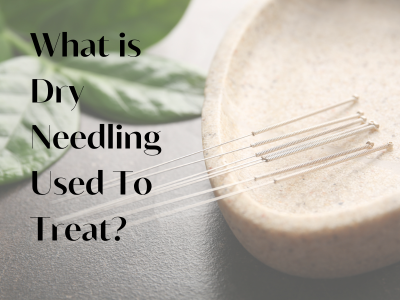Should You Get Dry Needling While Pregnant?
Dry Needling During Pregnancy
Integrating alternative therapies into prenatal care is a topic of growing interest, and one such technique under consideration is dry needling. This therapeutic approach involves the insertion of fine needles into specific trigger points in muscles to alleviate pain and promote healing. While studies on the safety and efficacy of dry needling during pregnancy are limited, some women explore this option to address musculoskeletal discomfort associated with gestation. However, caution is paramount, and individuals considering dry needling during pregnancy should engage in thorough discussions with both their obstetricians and healthcare providers offering the treatment. Understanding the potential benefits and risks is crucial for making informed decisions that prioritize the well-being of both the expectant mother and the developing fetus.
Dry Needling Risks During Pregnancy
Pregnant women considering dry needling should be cautious, as there are potential risks associated with the procedure during pregnancy. The primary concern lies in the proximity of needling to vital structures and potential inadvertent puncture of the amniotic sac. This risk is considered low when performed by a skilled and experienced practitioner, but it is crucial to acknowledge the potential for adverse events. Pregnant women may experience heightened sensitivity, and needling may induce discomfort or stress. The overall risk level is generally considered low to moderate, contingent upon the practitioner’s expertise and the specific health status of the pregnant individual. Prior consultation with both the obstetrician and the healthcare provider performing dry needling is imperative to assess individual circumstances and make informed decisions regarding the appropriateness and potential risks associated with the procedure during pregnancy.
Guidelines to Follow for Pregnant Women
Women contemplating dry needling during pregnancy should be mindful of several safety guidelines to ensure a well-informed and secure experience. Firstly, it is essential to obtain approval from the obstetrician overseeing the pregnancy, as individual health conditions may vary. Seeking out a skilled and experienced healthcare provider for the dry needling procedure is crucial, as expertise significantly influences safety. The practitioner should be aware of the woman’s pregnancy status and modify the treatment plan accordingly, avoiding certain areas and adopting a gentle approach. Communication is key, and any concerns or discomfort should be promptly addressed. Additionally, pregnant women should remain hydrated, adhere to proper positioning during the procedure, and consider the potential impact on emotional well-being. Ultimately, adhering to these safety guidelines, in conjunction with professional advice, can help mitigate potential risks and ensure a more secure dry needling experience during pregnancy.
Benefits of Dry Needling For Pregnant Women
Pregnant women may experience several benefits from receiving dry needling under appropriate circumstances. The therapy can offer relief from musculoskeletal discomfort commonly associated with pregnancy, such as lower back pain and pelvic girdle pain. Dry needling can aid in relaxing tight muscles and reducing tension, contributing to improved overall comfort. Additionally, the procedure may assist in managing stress and anxiety by promoting the release of endorphins, enhancing the woman’s emotional well-being. Improved mobility and flexibility are potential outcomes, addressing the physical changes and challenges that come with pregnancy. Tailoring the treatment plan to accommodate the unique needs and concerns of pregnant women, under the supervision of healthcare professionals, can enhance the safety and effectiveness of dry needling during this period. However, it is crucial to consult with both the obstetrician and the healthcare provider administering the dry needling to ensure that the benefits outweigh any potential risks for the specific individual and pregnancy status.
Post Partum Complications for Dry Needling
Women in the postpartum period should exercise caution and consider certain factors before opting for dry needling. It is crucial to wait until the body has adequately healed from childbirth, typically at least six weeks after a vaginal delivery and longer for a cesarean section. Hormonal changes during the postpartum period can increase sensitivity and emotional vulnerability, so it’s essential to communicate any concerns or discomfort with the healthcare provider performing the dry needling. Breastfeeding mothers should be cautious about the potential release of toxins during the therapy and may need to take precautions. Pelvic floor considerations should also be taken into account, and the practitioner should be informed about any ongoing postpartum issues. As with any medical intervention, individual circumstances vary, and consultation with both the obstetrician and the healthcare provider offering dry needling is crucial to assess appropriateness, potential risks, and to ensure a safe and beneficial experience for postpartum women.
Can Microneedling Cause Miscarriages
There is currently no scientific evidence linking micro needling to an increased risk of miscarriage in pregnant women. However, due to the limited research on this specific topic, it is generally recommended that pregnant women avoid elective cosmetic procedures, including micro needling, during pregnancy. While the risk may be low, potential concerns include the use of topical anesthetics or other substances during the procedure that may have unknown effects on fetal development. Pregnant women should consult with their healthcare providers before considering any cosmetic procedures. If there are any concerns or complications following a cosmetic procedure during pregnancy, such as micro needling, it is crucial to seek immediate medical attention and inform the healthcare provider about the recent treatment. Caution and open communication with healthcare professionals are essential in making informed decisions regarding cosmetic procedures during pregnancy.


